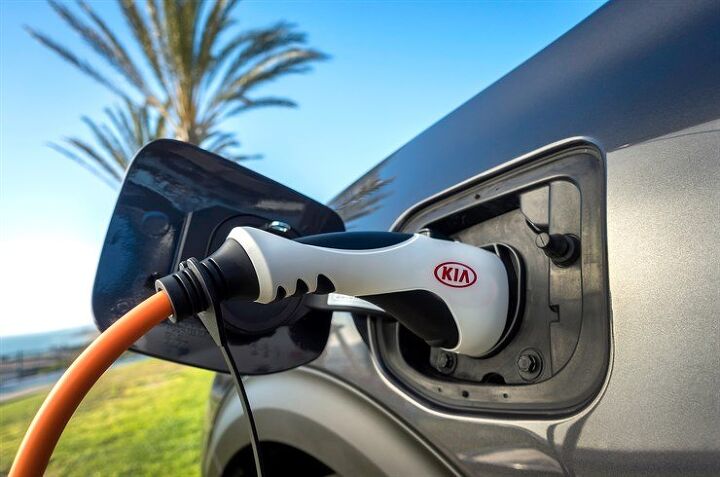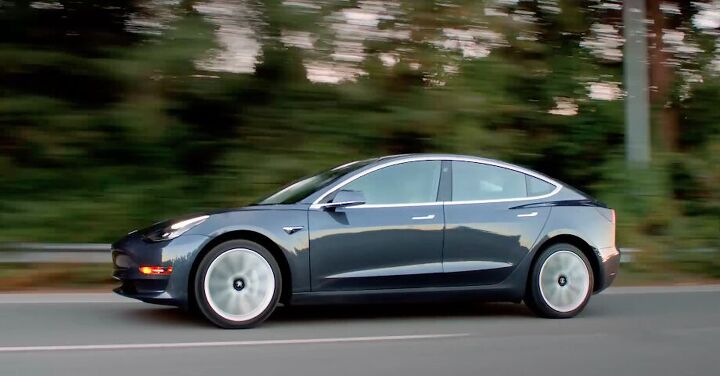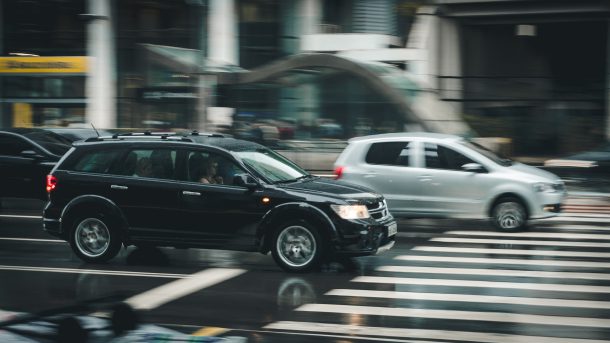#NHTSA
Hyundai Raided in South Korea Over Theta II Engine Recall
In 2017, United States safety regulators opened a formal investigation into the recall of roughly 1.7 million vehicles built by Hyundai Motor Co and its affiliate, Kia Motor Corp, after being tipped off by a former employee. The informant claimed the automaker wasn’t handling the issue properly. That same year, South Korean civic group YMCA filed a complaint with local prosecutors alleging the automakers delayed fixing engine defects that prompted the same recalls.
According to Reuters, South Korean prosecutors raided the offices of Hyundai Motor Group’s quality division in Seoul on Wednesday. While the investigation concerns the company’s Theta II engines, both investigations seek to nail down a timeline of the recalls and establish whether or not Hyundai handled the situation responsibly.
When It Comes to Tesla's Accident-reducing Autosteer, Don't Believe the Numbers
There’s a study you should read, and it delivers black eyes to both Tesla and the National Highway Traffic Safety Administration.
You probably remember the fatal crash of a Tesla in Mountain View, California last March, a crash that occurred as the victim’s car cruised along in Autopilot mode. Unexpectedly, the vehicle steered itself out of a lane, impacting a highway divider at high speed. Once again, the effectiveness and safety of Tesla’s Autopilot system came under scrutiny as Tesla scrambled to defend itself. The automaker pointed to the findings of a 2017 NHTSA report released in the wake of a fatal crash from 2016. That study claimed the automaker’s Autosteer system, when introduced as part of the Autopilot suite of automated features, lowered Tesla crash rates by 40 percent.
Don’t believe everything you read, says R.A. Whitfield, director of Quality Control Systems. Whitfield filed a lawsuit and waited nearly two years to get to the bottom of that 40 percent figure.
FCA Paid $77 Million in Civil Penalties to Sell Cars People Actually Want to Buy
Fiat Chrysler Automobiles paid $77 million in U.S. civil penalties late last year due to its failure to adhere to 2016 model year fuel economy requirements. In December, the National Highway Traffic Safety Administration (NHTSA) issued a report claiming the industry faced millions in fines from 2016 and that one manufacturer was expected to pay significant civil penalties.
You can probably guess which one. But FCA is by no means the only automaker affected by stringent fuel rulings.
National Transportation Safety Board Makes Biennial Recommendations in 'Most Wanted List'
The National Transportation Safety Board (NTSB) has released its “Most Wanted List” of Transportation Safety Improvements it would like to see implemented by 2020, placing the obligatory emphasis on enhanced safety regulations. While it’s not surprising that a safety board would be a stickler on the public’s welfare, the NTSB is pushing for more safety nets in an era where cars are less dangerous than ever. That meant the agency’s recommended occupant protection measures dealt more with refining infrastructure and curtailing undesirable behaviors than modifying automobiles — but there was some of that as well.
According to the NTSB, automakers, motorists, and the National Highway Traffic Safety Administration (NHTSA) should be focusing on finding better solutions to curtail distracted driving, operating a vehicle under the influence, and speeding. Then, and only then, can we achieve the NTSB’s dream of death-proof driving.
Ford's Police Interceptor Utility Off the Hook As Brake Investigation Wraps Up
While the National Highway Traffic Safety Administration’s probe into reports of exhaust gasses leaking into the cabin of certain Ford Explorers continues, the company doesn’t have to worry about the brakes on its law enforcement variants anymore.
After launching an investigation into front brake hose failures — at the request of the Sacramento Police Department — in 2015, the NHTSA returned the verdict this week. Nothing inherently wrong with those front stoppers, it said. It seems the Sacramento PD really, really pushes its vehicles in pursuit training.
Why Are Fatal Hit-and-run Accidents At an All-time High?
Roadway fatalities have been on the decline relative to population since the 1970s. However, the safest year on record since car ownership became commonplace was actually 2014. Deaths spiked in the following two years, with a very modest decline in 2017. While some of the increase can be attributed to more people driving more miles than ever before, accounting for both elements still results in a higher overall rate of fatal incidents.
Hit-and-run statistics mimic this trend, with 2,046 pedestrian deaths reported in 2016. It’s not the total number that’s alarming — it’s the rate of increase, too. The AAA Foundation for Traffic Safety now claims hit-and-run fatalities are becoming a serious issue; reported incidents within the United States have seen a 60-percent increase since 2009. In fact, they’re the highest they’ve been since the NHTSA started keeping track in 1975.
Automakers Ready to Rock When New NHTSA Headlight Rules Arrive
The National Highway Traffic Safety Administration announced earlier this month that it was willing to considering changing the rules that govern automobile headlights. Now in a comment period before its official review, the proposal would permit automakers to install and enable adaptive driving beam headlights on new cars sold in the United States. While some automakers are preparing themselves for the change, most have been ready for ages.
One one hand, this proposed change should help lousy drivers from burning out your retinas on a lonesome country road. But, by the same token, you may no longer have the delicious opportunity to blast them with the brights once they’re within a few feet of your car to let them know to lower those damned high beams.
Just kidding, that would be illegal. Federal mandates require all drivers to dim their headlights when approaching within 500 feet of an oncoming vehicle or when approaching a vehicle less than 300 feet ahead. Of course, nobody we know has ever witnessed this law being actively enforced — even though it’s probably as dangerous as moderate speeding infractions. Regardless, it’ll gradually become a non-issue if the rules change.
California Preps Formal Response in Gas War, Calls MPG Rollback 'Unlawful'
California and 18 other states plan to formally vent their grievances over the Trump administration’s proposal to freeze fuel economy standards at 2020 levels on Friday. The Environmental Protection Agency (EPA) and National Highway Traffic Safety Administration (NHTSA) have called for public comments on the matter, with the deadline taking place at the end of this week. Apparently, California wants its voice to be the last one heard.
“They are grossly derelict in not trying to move the dial forward in cleaning the air and the environment,” California’s attorney general Xavier Becerra said in a conference call with reporters on Wednesday. “The situation continues to get worse and requires action now, and not for us to stand pat.”
NHTSA Probes Ford Power Tailgates That Lower Themselves
In early August, Fiat Chrysler Automobiles recalled 1.1 million Ram pickups after owners reported losing their loads, the fault of a tailgate that wouldn’t stay latched. Ford now seems to have a similar problem, only in this instance the tailgates carefully lower themselves under electric power.
A ghost in the machine? More like an electrical issue that the National Highway Traffic Safety Administration wants to get to the bottom of. This week, the safety agency announced the launch of an investigation into consumer complaints related to the wonky gates, possibly heralding a recall of 2017 F-Series trucks.
Brighter, More Effective Headlights Now a Step Closer
The National Highway Traffic Safety Administration might soon grant automakers a long sought-after wish. On Thursday, the agency put forward a proposal to allow adaptive driving beam headlamps on U.S. passenger vehicles.
ADB lights would solve two problems at once: insufficient roadway illumination, as well as headlight glare. Despite the existence of automatic high beams, automakers currently have to find a happy medium in the amount of low-beam light thrown ahead of the car to prevent blinding oncoming motorists. According to the Insurance Institute for Highway Safety, which recently added headlight performance to its ratings criteria, plenty of new cars fail to find the right balance.
In the Hot Seat: Kia Niro Hybrid Recalled Over Fire Risk
Kia will be recalling 27,000 Niro hybrids sold within the United States due a potential defect in its wiring relay that could potentially send the rear seats up in smoke. According to filings with National Highway Traffic Safety Administration, Kia reported a few warranty claims involving burn or heat damage to the rear seats. There was also at least one customer complaint alleging that the rear seat actually caught fire.
Affected units are said to come from the 2017 and 2018 model years. The main relay located beneath the rear seats is believed to have poor connections between its contacts on some vehicles. This results in increased electrical resistance and heat. In a worst-case scenario, a fire is totally possible.
Deja Vu: Tesla Gets Into It With the NHTSA - Once Again - After Crash Test Boast
Following the release of crash test results in 2013, Tesla claimed the Model S earned more than five stars on the National Highway Traffic Safety Administration’s ranking scale. Nuh uh, said the NHTSA. There’s only five stars to hand out. No one gets more than that.
Fast-forward five years and the exact same thing is occurring, this time centered around the just-tested Model 3. That sedan, which still isn’t cheap, earned five stars in all NHTSA crash categories. Kudos to Tesla engineers. However, the NHTSA isn’t happy with Tesla’s weekend boast that suggested the Model 3 is the safest car ever tested by the federal agency.
California Prepares Counteroffensive in Great American Gas War, Asks Automakers For Ammo
California is considering a formal, public counter-proposal to the Trump administration’s proposed rollback of the existing fuel economy requirements for passenger vehicles. Gearing up for the launch, the state has requested that automakers present detailed information on their future products and explain why they’re seeking relief from fueling mandates they previously agreed to adhere to.
“They’ve never submitted to us any information that would back up those claims in any detail to help us craft a solution,” Mary Nichols, chair of the California Air Resources Board, (CARB), said in a Thursday interview with Bloomberg.
Feds Abandoning 10 Self-driving Test Sites, Sticking With Voluntary Regulation
With Honda and General Motors teaming up on a self-driving car and GM’s Super Cruise getting the green light from Consumer Reports, it’s already been a busy week for automotive autonomy — and it’s only getting busier.
The U.S. Transportation Department plans to repudiate 10 locations previously outlined by the previous administration to serve as federally recognized proving grounds for self-driving vehicle tech. But don’t think for a second that this means the noose is tightening around the neck of autonomous testing. The Trump administration is preparing a new initiative that will lead to nationwide testing from just about anyone who can cobble together a vehicle with advanced driving aids.
Good News: We Died Less Often on the Road Last Year
After alarming increases in U.S. traffic fatalities in 2015 and 2016, data just released by the National Highway Traffic Safety Administration shows a decrease in the number of people who died in car crashes in 2017. A decrease, for sure, but still a shocking number: 37,133, or about one-third the population of West Palm Beach, Florida.
The same is true for Billings, Montana, as well as North Charleston, South Carolina and Manchester, New Hampshire.
The 1.8 percent drop in road deaths comes on the heels of a 6.5 percent increase in 2016 and an 8.4 percent spike in 2015. Have we suddenly become safer drivers? It seems so.






























Recent Comments